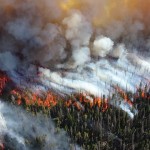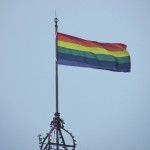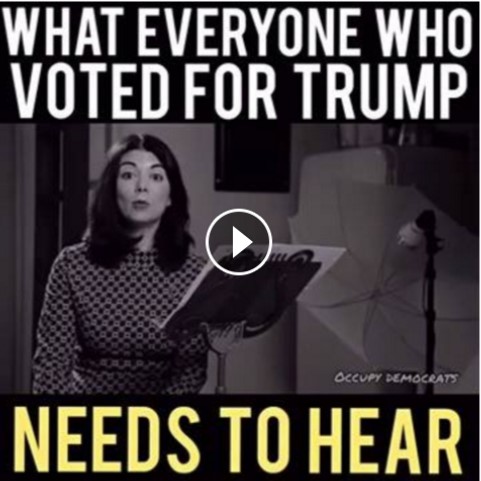 13th century Zen master Dogen taught that “to study Buddhism is to study the self.” Let me tell you, studying the self is a lifelong process! I constantly learn new things about myself, and much of what I learn isn’t flattering.
13th century Zen master Dogen taught that “to study Buddhism is to study the self.” Let me tell you, studying the self is a lifelong process! I constantly learn new things about myself, and much of what I learn isn’t flattering.
Most recently I have begun noticing how often I speak dishonestly when expressing my political opinions. Oh, don’t worry – I’m not speaking dishonestly about how I feel. I’m completely honest about that. Here’s how dishonesty creeps into my political speech:
- I express my opinions more confidently and strongly than I necessarily experience them, in order to make my point (voice raised, quick responses)
- I state things in absolutes (“people who think [blank] just don’t value [blank]”) instead of admitting grey areas, complexity, and diversity (“some of the statements I have read in the media suggest some people who think [blank] question the value of [blank]”)
- I state things as facts (“the only reason people [from the other political faction] are against this bill is because [blank]”) when my understanding is actually based on limited information (“I read an article from an admittedly biased news source where several people [from the other political faction] were interviewed and said they are against this bill is because [blank]”)
Despite the fact that as a Buddhist I have vowed to speak truthfully, part of me resists applying honesty to my political speech because I fear it will make my expression sound weak and tentative. I very strongly want things in the world to change. I don’t want to qualify, mitigate, or tone down my statements against racism, environmental destruction, and economic exploitation. No way! It seems best to state things as strongly as I can, even if I fudge the honesty piece a little from time to time.
But is this a-little-exaggeration-for-a-good-cause approach to political speech actually effective? From what I’ve seen in the political arena, again and again, I think the answer to that question is a resounding, “No!” If I exaggerate, overstate, and overgeneralize, those on the other side of any particular political divide will do so as well. We’ve all witnessed the utter futility of two opposing sides hurling their versions of The Truth back and forth – each side passionately aroused behind their cause and completely deaf to the other side.
As I have been trying to be more honest in my political speech, I’ve noticed several things:
- I speak more slowly and thoughtfully (it takes longer to recall the basis for my opinions than it does to simply blurt them out)
- I immediately touch base with my humility (there is a great deal I don’t know, and even though there are changes I passionately want to see happen, I have no clue about how to actually bring them about given the opposition of others)
- I stay more in touch with what’s actually going on in the conversation (Am I pointlessly pontificating with someone who already agrees with me in order to feel superior to the “other side?” Am I pompously educating an ignorant friend? Am I browbeating someone who thinks differently than me? If this is actually an opportunity to influence someone else’s opinion, what would be the most effective way to do that?)
- I get less drawn into a stressful state where there seems to be a dramatic struggle between Good and Evil – a struggle in which Good will win if only I’m able to formulate and express the right opinion in the right way
Can I be honest in my political speech and still take a strong stand? I think so. But maybe the meaning of “a strong stand” will be somewhat different.
For example, I believe we need to keep fossil fuels in the ground as much as possible, as soon as possible, and that we need to radically redefine what we think of as “possible.” I base that opinion on lots of reading (in published books as well as via online sources like the Union of Concerned Scientists website), direct observation of changing climate patterns and increases in wildfire and severe weather events, and common sense (fossil fuels pollute badly, and it’s just a matter of time before we run out of them anyway).
Let’s say I go to a demonstration against a new coal terminal in my city. There’s likely to be chants and signs around like “Keep it in the ground,” or “Fight multinational corporations!” I can’t decide what is honest for other people, but for me, I’d feel more honest chanting something like “Fossils fuels: just say no,” or “Change starts in Portland!” As I demonstrated, I would try to stay mindful of my breathing and keep in touch with my humility. I would march because I love wildlife and birds and ecosystems and healthy children, not because I am Right and the other side is Wrong. Maybe in some sense the other side is wrong, but how useful is it to make that the basis of one’s speech and actions?
It seems to me honest political speech is more compassionate and, ultimately, more effective. It seems less likely to provoke the other side into their own dishonesty. When I recall the political speech of Gandhi, Nelson Mandela, and Martin Luther King, I recognize honest political speech.
Regardless of whether honest political speech has a positive effect on others, however, I know it makes me feel better. That’s consistent with the basic premise of Buddhist morality: dishonesty leads to suffering for self and other. When I leave a political conversation where I have fudged the truth in favor of making my point, I feel agitated, attached to a sense that I’m right, and defensive. When I leave a political conversation where I have been honest, I may feel saddened or concerned about the issues that were discussed, but I am generally more calm. I’m also much more likely to have actually learned something from the discussion.












